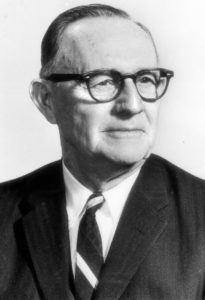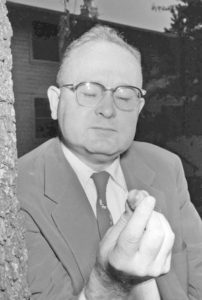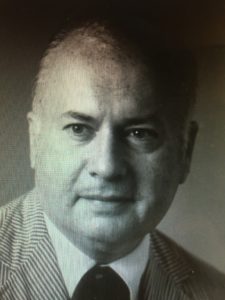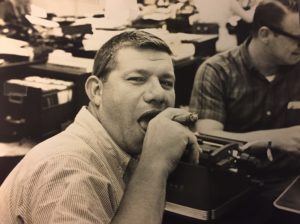When I was in the Navy and my ship went overseas, the Philippines, Japan, Hong Kong, I wrote a couple of letters to Brodie S. Griffith, editor of The Charlotte News, the newspaper where I worked the summer after I graduated from Garinger High School in 1960.
I wanted to keep that door open.

I came home on leave for the last time in the summer of 1962, just before I was released from active duty and started school at the University of North Carolina at Chapel Hill. I went by the paper to see Mr. Griffith and say hello, a courtesy call.
We talked a few minutes and, as I was about to leave, he asked if there was anything he could do for me.
Normally when someone says something like that I think they’re just being polite and I wave it off. I say, “No, but thanks anyway.” But for some reason I didn’t do that; I did just the opposite.
“You could get me a job and a scholarship,” I said.
So he did.

While I sat there in his office he called the University News Bureau, talked to Pete Ivey, the director, and then told me to go around and see Mr. Ivey when I started school. I did, and Mr. Ivey hired me.
And then Mr. Griffith called the UNC School of Journalism. I don’t know who he talked to but I heard what he told them, words to this effect:
“You know we’ve sent a lot of money up there over the years. Uh-huh. Well, now I want some of it back. I have a fine young man sitting here in my office and he needs a scholarship.”
When I enrolled in the School of Journalism, a scholarship was waiting for me.
Coming Friday: “Get A Gun,” Part 1

NOTE: I didn’t work very long for the UNC News Bureau before Bob Quincy, director of the UNC Office of Sports Information, hired me. Bob had been sports editor of The Charlotte News when I worked there in the summer of 1960, just before I went on active duty in the Navy.
Bob was a pro, through and through — a good mentor. But he had a temper, and I’ve written about it, twice. See “Quincy The Terrible,” Part I and Part II, posted on Dec. 12-13, 2016.
